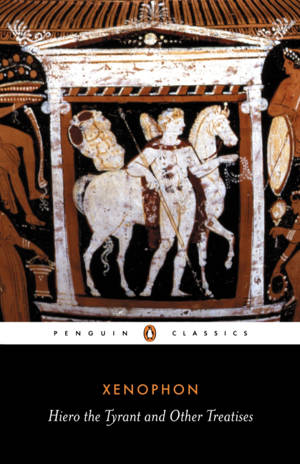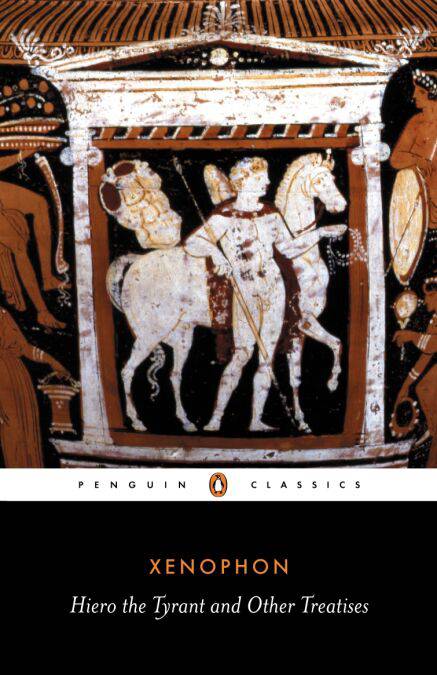
Bedankt voor het vertrouwen het afgelopen jaar! Om jou te bedanken bieden we GRATIS verzending (in België) aan op alles gedurende de hele maand januari.
- Afhalen na 1 uur in een winkel met voorraad
- In januari gratis thuislevering in België
- Ruim aanbod met 7 miljoen producten
Bedankt voor het vertrouwen het afgelopen jaar! Om jou te bedanken bieden we GRATIS verzending (in België) aan op alles gedurende de hele maand januari.
- Afhalen na 1 uur in een winkel met voorraad
- In januari gratis thuislevering in België
- Ruim aanbod met 7 miljoen producten
Zoeken
Omschrijving
One of Socrates' Athenian disciples in his youth, Xenophon (c. 498-354 bc) fought as a mercenary commander in Cyrus the Younger's campaign to seize the Persian throne, and later wrote a wide range of works on history, politics and philosophy. These six treatises offer his informed insights into the nature of leadership. In the dialogue between the poet Simonides and Hiero, tyrant of Syracuse, Xenophon provides a consummate consideration of the burdens of being an absolute dictator and the superior happiness of the private man. Elsewhere, his biography of King Agesilaus II of Sparta depicts the author's patron as a model of piety, justice, courage and wisdom, while other texts consider the essential qualities of the cavalry commander, analyse the skills of the horseman and the hunter, and advance a bold economic plan for democratic Athens.
Specificaties
Betrokkenen
- Auteur(s):
- Vertaler(s):
- Uitgeverij:
Inhoud
- Aantal bladzijden:
- 288
- Taal:
- Engels
Eigenschappen
- Productcode (EAN):
- 9780141959627
- Verschijningsdatum:
- 29/03/2006
- Uitvoering:
- E-book
- Beveiligd met:
- Adobe DRM
- Formaat:
- ePub

Alleen bij Standaard Boekhandel
+ 9 punten op je klantenkaart van Standaard Boekhandel
Beoordelingen
We publiceren alleen reviews die voldoen aan de voorwaarden voor reviews. Bekijk onze voorwaarden voor reviews.









